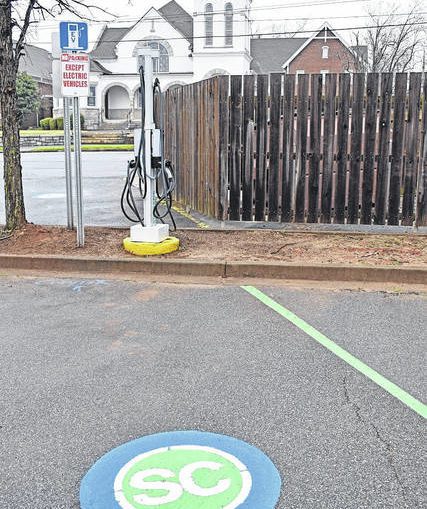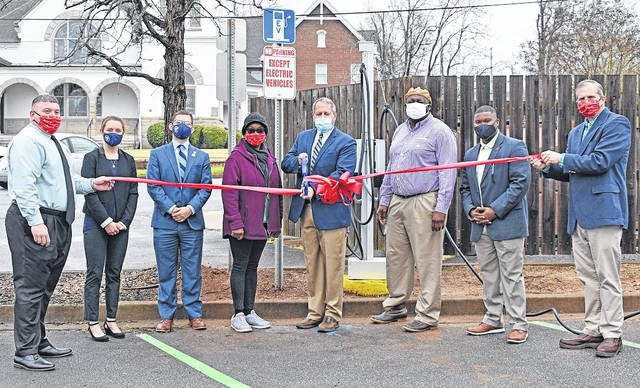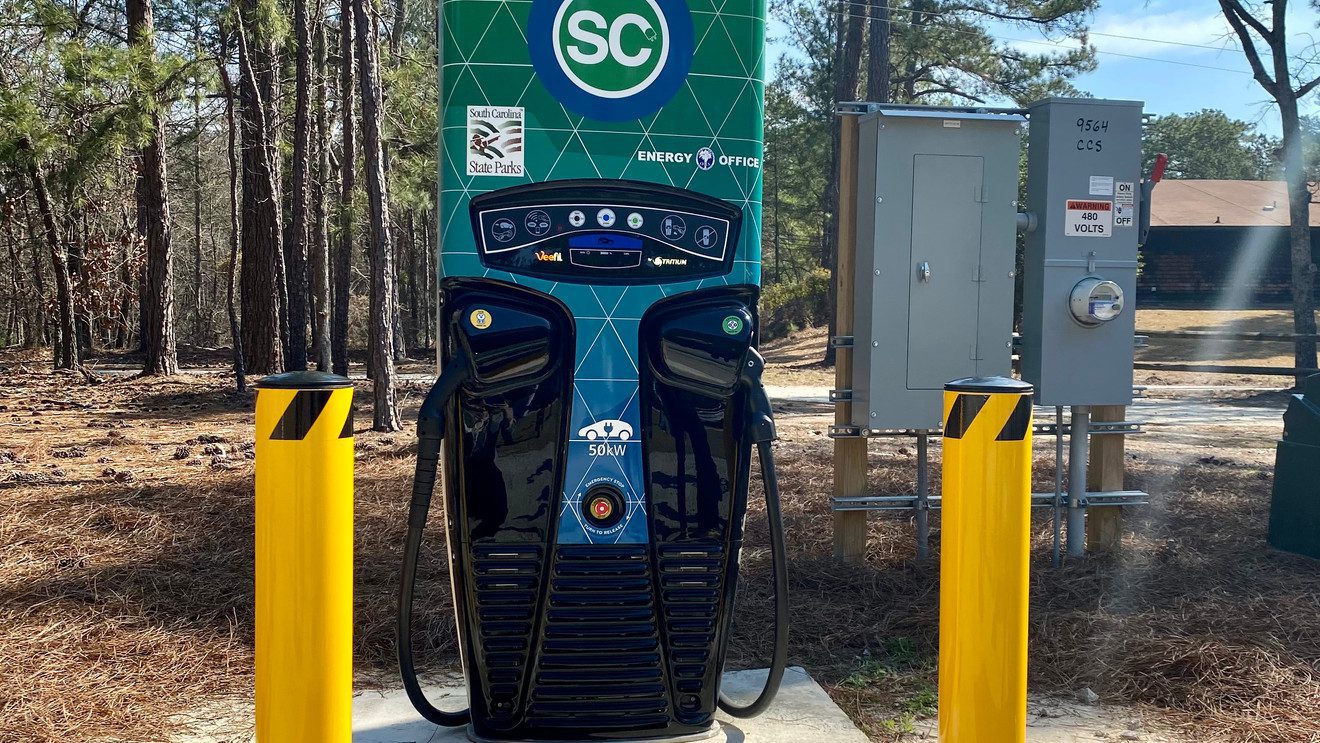South Carolina is taking big steps to ensure that electric vehicles can be easily charged across the state. Recently, three state parks added new electric vehicle charging stations, and the city of Newberry held a ribbon-cutting ceremony for their charging station. The timing could not have been better. The recent Colonial Pipeline hack – a computer hack that shut down supply from a major regional gas pipeline – directly affected the Palmetto State, with many consumers unable to find gasoline for more than a week. That shortage underscored the need for reliable alternative fuel vehicles, which are better for the environment and save consumers significant money.
The South Carolina Office of Regulatory Staff teamed up with the state’s Department of Parks, Recreation, and Tourism to install charging stations at Paris Mountain State Park in Greenville, Santee State Park in Santee, and Sesquicentennial Park in Columbia. Each park is located a short distance from major interstates and city centers to make the stations readily accessible for drivers. The stations are free to use.

“The electric vehicle charging stations at [the parks] are a natural fit with [our] mission,” said Department of Parks, Recreation and Tourism Director Duane Parrish. “We are dedicated to being good stewards of South Carolina’s natural resources and providing a positive customer experience. These charging stations help us fulfill that mission in a new and innovative way, giving visitors a chance to recharge electric vehicles in some of South Carolina’s most beautiful landscapes.”
There is another partner in the development of charging stations: the United States Department of Energy (DOE). The DOE’s State Energy Program funded the stations.
“One of [our] duties is to promote the use of alternative fuels,” said Nanette Edwards, Executive Director of the Office of Regulatory Staff. “This project helps South Carolina take a significant step toward promoting clean transportation, diversifying our transportation fuel sources, and making our state more resilient. The partnership…also showcases the benefits of state agencies working together to meet our mutual goals for the state.”

The state says the charging station usage data will be tracked to better understand consumer’s needs. It’s clear that the need is growing quickly. In Newberry, just north of the state capitol, a brand new charging station recently opened in the county library parking lot. The station, located purposefully within walking distance of everything in the town’s vibrant downtown, came as a response to recent state data indicating that uncertainties about where to charge are a major deterrent for consumers who wish to make the transition to an electric car or truck. The city has also focused on signage to alert both local residents and nearby interstate drivers to the new charging option.
There is no doubt that the Colonial Pipeline hack spurred an increased enthusiasm for electric vehicle purchases by South Carolina residents. In fact, the resulting surge in electric vehicle rentals underscored the need to expand the number of charging stations. With every major car manufacturer in America planning a larger, more affordable fleet of electric vehicles by 2030, it’s clear the state (and others) needs to prepare quickly for the transition.
“It’s certainly an opportune time to be an electric vehicle driver,” said Clemson University economist Matthew Lewis. “[During the pipeline hack], there was no gas at all.”
South Carolina is also responding to national trends that indicate large migration of drivers to electricity. Though just 4 percent of American drivers “definitely” will buy an electric car, almost a third are “strongly” considering it – and more than 70 percent would consider the purchase. And those numbers were before the pipeline issues exacerbated the need. The state is doing impressive work: these new stations bring the tally to 702 public electric charging stations from the Upstate to the Low Country.





